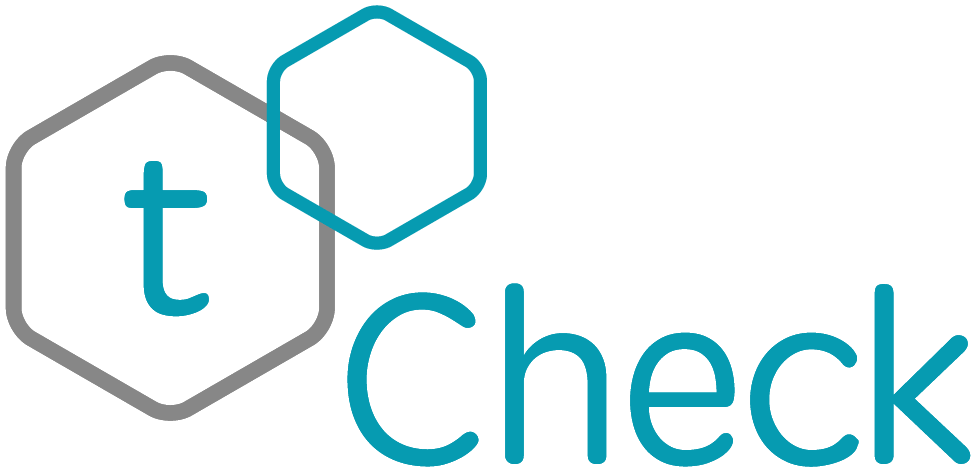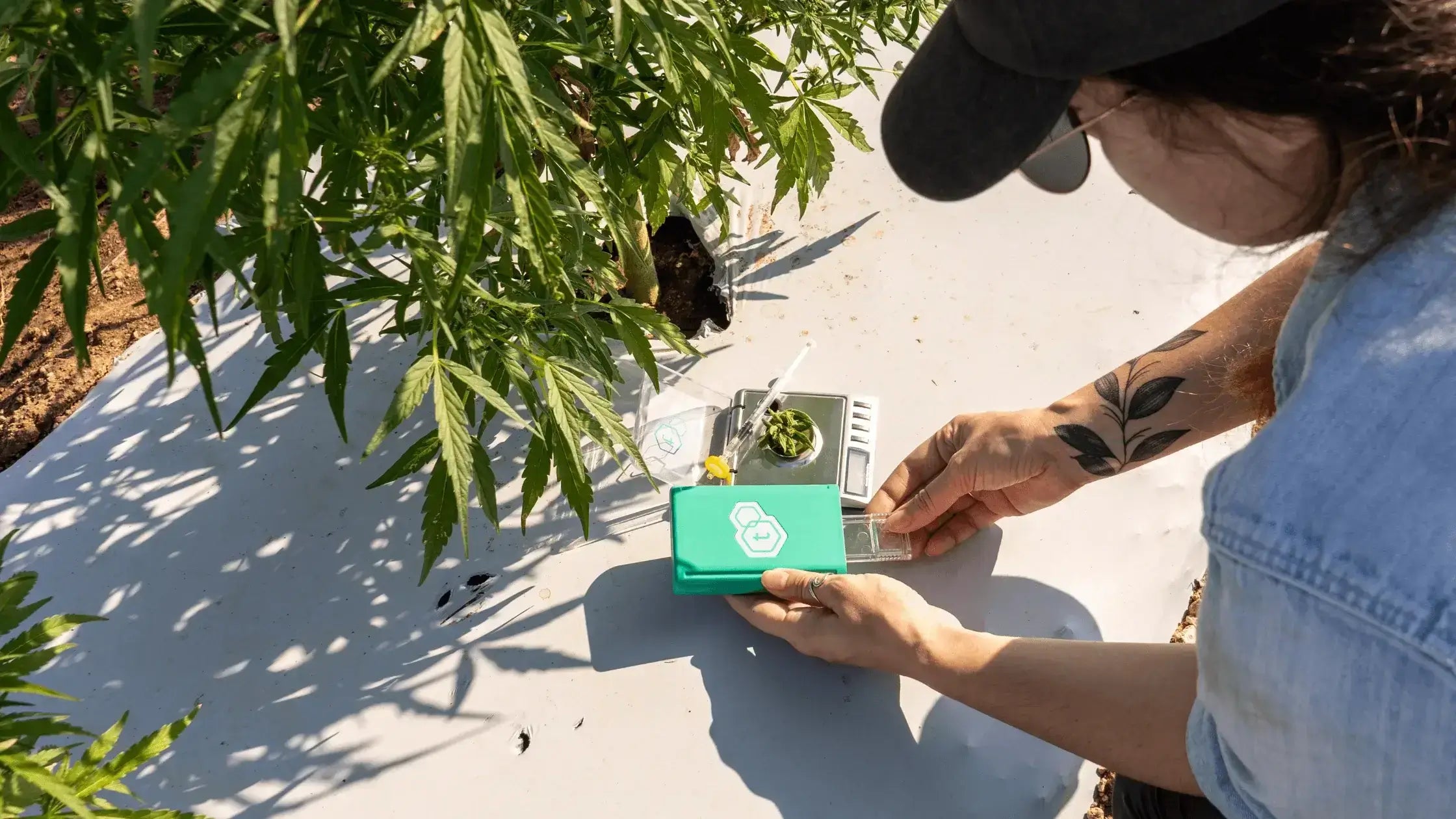Smoking buds before bedtime isn't breaking news for experienced cannabis users. In fact, insomnia often ranks as one of the most common reasons people start using medical marijuana. Anecdotally, recreational users frequently report feelings of relaxation and sedation shortly after smoking dank strains late in the day. However, these personal testimonies don't tell the whole story of weed's impact on sleep health.
While few deny cannabis has some effect on our circadian rhythm, just how much this herb influences sleep conditions is up for debate. Since cannabis has such a rich chemical composition — and since it has only been available for medical research for the past few years — there are a lot of complexities when analyzing its impact on sleep. We don't have all the answers on weed's sleep-inducing properties, but science is starting to reveal the promising (and problematic) aspects of taking cannabis at night.
Cannabis For Sleep — Exploring The Latest Findings
Cannabinoid Receptors and the Circadian Rhythm — The Preliminary Science Behind Cannabis And Sleep
Although there are more questions than answers on marijuana's sleep-influencing mechanisms, scientists now agree that the body's endocannabinoid system (ECS) and circadian rhythm overlap. In other words, the natural cannabinoids (or endocannabinoids) our bodies produce, such as anandamide, appear to influence our sleep-wake cycle. The primary reason cannabis seems strongly affiliated with sleep is the ECS's association with the circadian rhythm. Because cannabinoids in cannabis mimic our bodies' endocannabinoids, it makes sense that they alter sleep processing.
Some recent trials suggest cannabinoids directly stimulate a brain region known as the suprachiasmatic nucleus, producing higher quantities of the neurotransmitter GABA. Short for "gamma-aminobutyric acid," GABA is critical for slowing down the stress response and priming our body for relaxation. In addition to GABA modulation, it appears cannabinoids also boost the neurotransmitter adenosine, which has a close association with making people feel sleepy before bedtime.
There's also emerging evidence cannabis plays a role in reducing the body's arousal response and increasing the production of the sleep hormone melatonin. Some studies suggest cannabinoids like THC achieve this effect by landing on the brain's CB1 receptors, especially in the basal forebrain. Both of these findings help explain why cannabis has a relaxing impact on some users.
Still, researchers caution there's no simple one-to-one correlation between cannabis and improved sleep quality. While THC seems to make it easier for some people to fall asleep quicker (aka "improve sleep latency"), this effect is incredibly dose-specific. As users ramp up their THC dosage, they heighten the risk of experiencing undesirable side effects like paranoia rather than sleep improvement. Therefore, anyone experimenting with cannabinoids for sleep health needs a reliable at-home scanner like tCheck for optimal safety and efficiency.
So, Does THC Help Or Hinder Sleep Cycles?
Unfortunately, there's no simple answer for whether THC is good or bad for sleep health. As mentioned above, some data shows THC increases melatonin production and improves sleep quality, and some tests involving pharmaceutical-grade THC, like nabilone, show potential for reducing PTSD nightmares. On the other hand, this psychoactive cannabinoid can provoke undesirable side effects. There's also evidence that dosage and tolerance play a critical role in whether THC positively or negatively impacts sleep.
Typically, the more frequently people use THC-containing weed, the lower the odds they'll have a relaxing experience. Also, high-dose THC products like potent flowers and concentrates have lower chances of success for sleep-related conditions versus low-dose THC.
Of course, if people are prone to THC's notorious "paranoid" side effects, chances are they'll have a difficult time getting into a sleepy state of mind. Generally, patients with conditions like anxiety or panic attacks have the worst reactions to THC, and there's an estimated one in five chance users will experience paranoia after taking THC-containing weed. Most researchers now believe the impact of THC largely depends on our genes, and new users must start with the lowest recommended dose to avoid adverse reactions.
What About Using CBD Oils For Sleep?
After THC, CBD is the most abundant and well-researched cannabinoid in the cannabis kingdom, and it has been making quite the impression in the sleep community. Since CBD is non-psychoactive and federally legal under the 2018 US Farm Bill, it's a more accessible and attractive option for customers looking for sleep relief. Interestingly, a few trials suggest CBD does a better job of winding the body down for sleep compared to THC.
There are many theories about why CBD seems to help many patients get ready for bed, but one popular explanation is its influence on the compound anandamide. As mentioned earlier, anandamide is an endocannabinoid that plays a role in sleep regulation. Some studies suggest CBD increases anandamide production, which might explain the calming feelings people experience after taking a CBD-rich hemp strain, edible, or oil.
Some scientists argue CBD's "sleep-promoting" effects are secondary to its anti-anxiety and anti-inflammatory properties. Placebo-controlled trials out of Japan and Brazil suggest CBD works better than placebos for social anxiety disorder, and research from the University of Kentucky suggests CBD helps reduce knee inflammation in a rat model.
So, are people who say they "sleep better" after taking CBD simply experiencing the side benefits of its analgesic and anxiolytic properties? Perhaps. At this point, it's too early to say how much CBD directly affects the circadian rhythm, but these preliminary trials suggest it has potential uses as a sleep aid.
Are There Weed Strains Specific For Sleep?
Another question cannabis consumers often have is whether certain cannabis strains have a greater affinity for sleep-related symptoms. The popular advice is that strains in the "indica" family are more sedating versus those with a more significant "sativa" presence, but some scientists argue these distinctions aren't the most reliable metric for predicting a strain's impact. Although botanical differences exist between sativas and indicas (e.g., sativas grow tall and thin, while indicas are short and bushy), ascribing different effects to these cannabis categories has more to do with anecdotal testimonies than hard science.
Still, many consumers cling to the idea that indica strains have higher odds of producing sedating "couchlock" effects. Some argue indicas have higher CBD concentrations, while others point to their higher-than-average concentration of the fruity and (supposedly) sedating terpene myrcene.
While chances may be higher indica strains produce sedating effects, consumers must rely on high-quality test results from a device like the tCheck scanner for accurate information. Only a clear reading on your strain's THC/CBD ratio will give you a preview of what effects to expect. As previously mentioned, low-to-moderate THC scores tend to have the best odds of improving sleep, while high-THC strains often interfere with sleep quality (especially for daily weed users).
A Quick Word On CBN — Is It The "Couchlock Cannabinoid?"
 Similar to the indica versus sativa debate, some cannabis users swear harvest time influences a strain's standard effects. According to this theory, late-harvested weed has the highest odds of producing a couchlock sensation because it tends to have exceptional concentrations of the cannabinoid cannabinol (CBN). Interestingly, CBN is an "oxidized" form of THC, which is why it appears in greater quantities the longer growers wait to pluck their flowers. The more time THC interacts with air molecules, the more likely it'll break down into CBN.
Similar to the indica versus sativa debate, some cannabis users swear harvest time influences a strain's standard effects. According to this theory, late-harvested weed has the highest odds of producing a couchlock sensation because it tends to have exceptional concentrations of the cannabinoid cannabinol (CBN). Interestingly, CBN is an "oxidized" form of THC, which is why it appears in greater quantities the longer growers wait to pluck their flowers. The more time THC interacts with air molecules, the more likely it'll break down into CBN.
There's a lot we don't know about CBN's impact on the ECS, but preliminary data suggests it doesn't have a noticeable impact on sleep. Does that mean CBN-rich strains aren't as sedating as people make them out to be? Unfortunately, it's hard to say anything with 100% accuracy, but research suggests the "CBN lethargy legend" may be an unsubstantiated rumor. CBN might have anti-anxiety or anti-inflammatory effects similar to CBD, but we'll need more high-quality research to support these claims.
Tips To Bear In Mind Before Breaking Buds Before Bedtime
There's no question cannabis has some effect on sleep health; however, nobody's sure about the complex interplay of different cannabinoids, terpenes, and flavonoids on the circadian rhythm. There are, however, a few pointers for new cannabis users to keep in mind if they're considering adding cannabis to a sleep routine:
- Start with high-dose CBD products, as these usually have a lower risk for side effects and building a tolerance.
- Be sure to carefully experiment with low amounts of THC to see how you react before using it for sleep.
- If you're using THC-rich strains, stick with low doses and schedule regular T-breaks to avoid building a tolerance.
- Keep track of your cannabinoid dosages and standard effects in a journal for future reference.
- Research the common effects of different cannabis strains online to see the average results most users experience.
- Focus on cannabis strains in the indica family with high traces of sleep-related terpenes like myrcene and linalool.
Don't Forget To Dose Cannabis Before Bedtime!
For the best odds of success incorporating cannabis into a sleep cycle, taking precise measurements is a must. If you don't know the dose of CBD or THC in your flower, gummy, or capsule, there's no way to get a preview of your experience and keep accurate records of what works best for your body.
The simplest way to verify the cannabinoid concentration in your sleep time strain is by using a convenient tCheck scanner. With our convenient tCheck scanner device, you can quickly figure out the total cannabinoids in your cannabis products within a few minutes. Check out how tCheck scanners can help you dose your weed for a predictable and pleasant nighttime experience.










